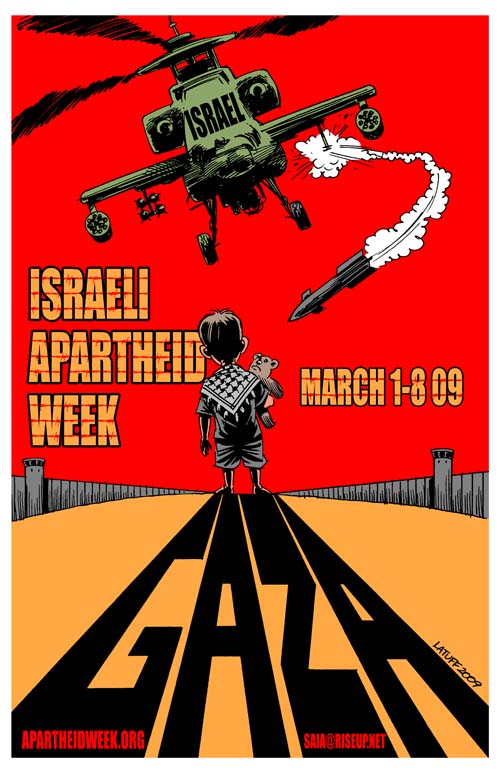Academics, students and activists have been facing repression in Canada, including harassment, intimidation and reprisals for their pro-Palestinian views, a new 106-page report by Independent Jewish Voices (IJV) shows.
“When it comes to Palestinian human rights, too often academic freedom and freedom of expression are undermined,” the report states, “and with them the possibility of finding just solutions to intractable problems.”
The report, “Unveiling the Chilly Climate – The Suppression of Speech on Palestine in Canada”, is thought to be the first detailed examination of the experiences of faculty and students who criticise Israel’s policies toward Palestine.
It examined Palestinians who are actively attempting to change these policies by both their support for the Boycott, Divestment, and Sanctions (BDS) movement, and their opposition to the adoption of the International Holocaust Remembrance Alliance (IHRA) working definition of antisemitism.
“There is a connection to be made here between these attacks and efforts by pro-Israel advocacy groups to market the IHRA, a document that has come under vigorous attack by defenders of academic freedom and Palestinian human rights,” the report states.
“While its proponents argue that this definition will not threaten freedom of expression or inhibit criticism of Israeli policies, the findings of this report demonstrate that these basic rights are already under threat and could be further imperilled if the IHRA were to be widely adopted.”
The report includes 77 testimonies which describe both the overarching effects of the crackdown and the personal impacts it has on students, faculty and activists. While the report is mostly focused on Canada, it also touches on the experiences of European academics, artists and students who are publicly pro-Palestinian.
Eight interviewees reported their submissions to academic journals and book publishers were met with negative reviews which cited the author’s critical stance on Israeli human rights violations.
A number of interviewees felt the academic environment in Canada was particularly unwelcoming to those working in the area of Palestine studies.
According to the report, there were several attempts to prevent access to event venues and the attempted cancellation of public events on Palestine, as well as the targeting and doxxing of activists including the 125 Canadian academics and activists on the “Canary Mission” website.
This initiative, which operates anonymously, blasts students and faculty who criticise Israel with accusations of antisemitism and supporting terrorism. Canary Mission attempts to use its reach to suppress pro-Palestine activism.
Student activists also reported threats of violence, which contained racial and sexual slurs. Many students have been subjected to warnings and disciplinary measures by university administrators.
In 2009, several universities banned a poster advertising Israel Apartheid Week. The poster depicts a helicopter labelled “Israel” shooting a missile at a toddler holding a teddy bear, labelled “Gaza”.
In 2016, elementary school teacher Nadia Shoufani was suspended from her teaching job after speaking at an Al Quds Day rally. It was alleged that Shoufani had “glorified” terrorism. In 2017 Shoufani was cleared of any wrongdoing by the Ontario English Catholic Teachers’ Federation.
In 2021, Friends of Simon Wiesenthal Center called for the disciplining of the University of Toronto professor, Chandni Desai, for sponsoring an event about Palestinian author Ghassan Kanafani.
They wrote: “It is shocking and totally unacceptable that a professor at a Canadian university would participate in an event that honours and venerates an individual [Kanafani] complicit in the mass murder of civilians.”
In the IJV report, those who were surveyed reported violations of their academic freedom, from political intention to hiring decisions.
They also reported pressure to self-censor when it came to writing or speaking about Palestine. Many reported facing harassment by pro-Israel advocacy groups and media outlets.
When it came to academics, they reported encountering Islamophobia and anti-Palestinian racism from colleagues and students. Many reported suffering from the emotional stress of working in a hostile environment as they were not yet tenured.
“The Research Report constitutes a deeply disturbing indictment of the multiple sources responsible for the depth and breadth of a wholesale attack on freedom of speech,” said Anthony Lerman, a senior fellow at the Bruno Kreisky Forum for International Dialogue in Vienna.
“The weaponisation of antisemitism so comprehensively deployed to justify racism against Palestinians is not only morally indefensible, it does nothing to protect Jews against real antisemitism.”
Post Disclaimer
Disclaimer: Academics in Canada face harassment, intimidation for pro-Palestinian speech, report shows - Views expressed by writers in this section are their own and do not necessarily reflect Latheefarook.com point-of-view

